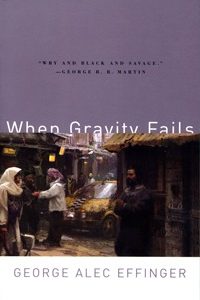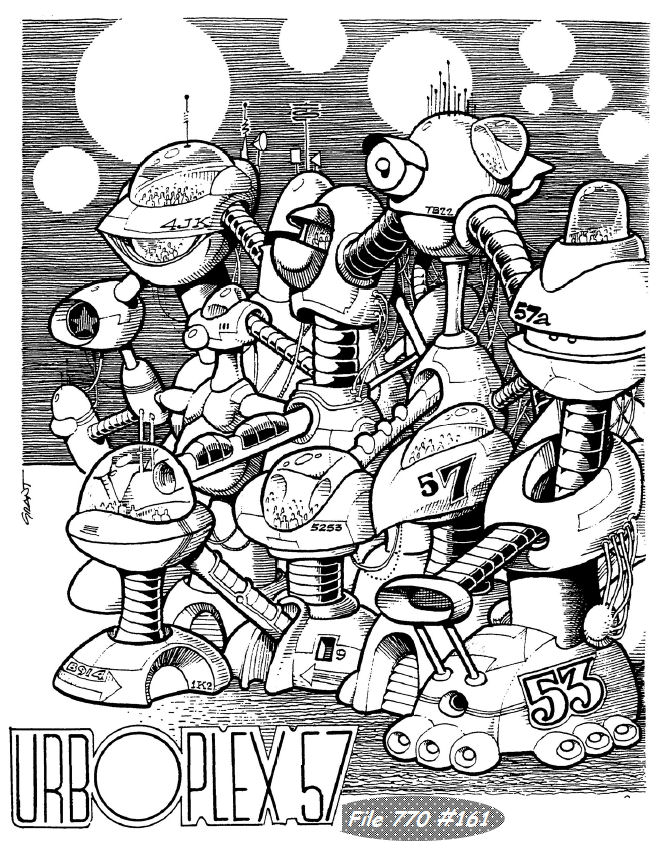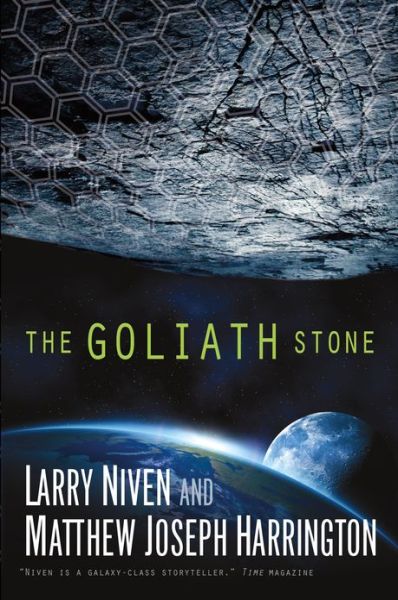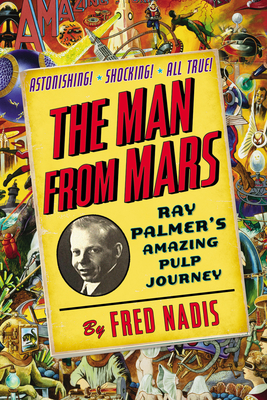 When I punk, it’s usually with steam.
When I punk, it’s usually with steam.
Any SF fan, regardless of his particular poison, thinks about the future. With my historical background, however, my gaze tends to be fixed on the past and I am rarely distracted by images of the future. The great thing about Amazing Stories, however, is the wealth of viewpoints and opinions it offers. So when I announced my planned exploration of SF detectives, When Gravity Fails by George Alec Effinger came up more than once and I decided to give it a shot.
When Gravity Fails (1986) is the Nebula/Hugo-award winning novel taking place in the 22nd century cyberpunk future. Surprisingly, the backstory of this novel tied into my previous articles for Amazing. For example, in this future the United States, the Soviet Union (not Russia, mind you, but more later) and Europe have fractured into smaller states. Although these new nations only get mentioned in passing by most characters, some common tropes make appearances such as “Sovereign Deseret”.
Yet the geopolitical situation betrays some historical assumptions Effinger had about the future. I once attended a reading and signing of Harry Turtledove‘s The Man with the Iron Heart. During the Q&A session, Turtledove the shock people of his generation felt when the Soviet Union collapsed removing the “Red Menace” and the threat of nuclear annihilation. You sort of see the same idea in Effinger’s universe. Even though the Soviet Union disbanded in our history, the balkanization he predicted left out the core territory, Russia, still intact and relatively in good shape enough to still be a major world power. I think Effinger and others assumed if the Soviet collapsed fell, it would fall hard and western civilization would go with it. I think the post-When Gravity Fails Effinger found it as surprising as everyone else when things turned out the way they did.
Okay, enough about geopolitics, let’s get into the meat of the story. When Gravity Fails is entirely set in a fictional Middle Eastern city, somewhere in the Levant and near the coast based on hints from the characters. If I had to guess I would think the city is in Israel, or at least what used to be Israel. If the western world collapsed, Israel probably went with it, leaving the territory open to whoever could get their hands on it. Of course, the assumption is based on the belief Israel went quietly into the good night without doing anything about it. Still the location of the city is not as important as who lives in the city.
It is a predominantly Arabic/Muslim city, but people from all over the world can be found here as the Islamic world has once again become the center of learning and development. The portrayal of Muslims in this universe is actually well done. Instead of the one race/religion version which seems to dominate media (both fiction and non-fiction) we see a diverse group of people from various ethnic, racial and religious backgrounds who do not always get along. There are sinners and saints, plus everything in between. So far the book is off to a good start with me.
The main character of the story is Marîd Audran, the son of a Maghreb prostitute mother and an unknown French father. He immigrated to the city and lives in the criminal/entertainment sector, the Budayeen. Marîd makes a living as a freelance agent, working with both the criminals and police of the neighborhood on various odd jobs, often crossing the line of what is legal. Marîd is a unique denizen of the Budayeen and I am not talking about his ethnic heritage. Most people in this universe are “wired” at a young age (one character said he had the operation done at 13) with cybernetic modifications. This allows the user to install hardware which can give them new skills (such as language fluency or heightened pain tolerance) or a completely new personality. Have you ever wanted to be James Bond for the day? Well now you can…unless you are Marîd. He has a superstitious dread of altering his brain (unless it is drugs, he has no problems altering it chemically). Marîd enjoys being able to out-smart modified humans just using his mark one brain and fears any modification done to himself will destroy his identity.
If life could be what fictional characters want it to be, these stories would be a lot less interesting and I wouldn’t be reviewing them.
A serial killer is on the loose in the Budayeen, brutally murdering many of Marîd’s close associates. The killer uses antique projectile weapons (guns being replaced by more civilized weapons) or sometimes disembowels his victims depending on what moddie (digital personality) he is using. Some victims are even raped and tortured before dying, causing Marîd to suspect there may be more than one killer roaming the streets, even though most people don’t believe him. As more people die, Marîd is tapped by Friedlander Bey, the city’s allegedly centuries old crime lord, who feels the killer(s) is a threat to his control of the criminal underclass who may leave him if he can no longer provide them with protection. Bey wants Marîd to receive experimental cybernetic enhancement to better prepare him to track the murderer(s).
Marîd is obviously hesitant with this plan. On one had he wants to preserve his independence and physical purity, but he feels outclassed by the killer(s) and worries about the safety of his friends in the Budayeen, including his on-and-off again girlfriend Yasmin. Marîd’s inner conflict is the meat of the story as he races toward the inevitable bloody conclusion. Not to spoil anything (but why would you read a book review and not expect some spoilers) but Marîd will lose many things before the final confrontation.
Did I mention Yasmin is a trans woman? Transgender is a big theme throughout the novel and, except for the most religiously puritans, everyone seems to accept it without complaint. Although never explicitly stated, gender seems to have become completely arbitrary with any and all derision being reserved to those few people who can’t make up their mind on what sex to subscribe too. As today’s society becomes more tolerant of transgender/multiple gender people and parents try to raise their children more gender neutral, the human interactions portrayed in the novel are probably the most plausible parts of this future, regardless of the geopolitics mentioned above.
Alright, let’s wrap it up. In general I liked When Gravity Fails. The novel had realistic characters, engaging dialogue and a unique setting. Pacing could have been better, with some scenes lasting longer than they needed to be. As a detective, Marîd Audran has a lot in common with Sherlock Holmes. He works freelance, often skirts the law and are a little odd compared to the prevailing culture. The similarities, however, end there. Intellectually, there is not anything special about Marîd. He is often fooled and overpowered by other characters and solves the mystery mostly by stumbling upon clues instead of tracking them down through observation and deduction. In this case, as Steven H Silver mentioned in his review, he has more in common with Sam Spade instead of the great sleuth of Victorian England.
Yet When Gravity Fails deserves its awards and is a good book to start regardless of your experience with the cyberpunk sub-genre. There are two sequels (and Half a Crown’s author Jo Walton does recommend them), but we will see if I pick them up. Right now the wormhole is opening and there is a whole new universe to explore…











I enjoyed When Gravity Fails when I read it years ago. It was easily my favorite of the trilogy. GAE was very talented, may he rest in peace. If you can get your hands on it, read his award winning short story "Schrodinger's Kitten". Possibly it is his best work.
Useful link:
https://www.fantasticfiction.co.uk/e/george-alec-e…
Thanks, I'll check it out.
I freely admit – reading this book when it came out in the 80s was a life-changing experience. Like Alfred Bester's The Demolished Man, this book changed what I thought was possible from Science Fiction. It is entirely possible my love of noir came from this book.
So many books to read so little time. Don't get me wrong, When Gravity Fails is a good book, I might even have to read more cyberpunk now, but life-changing? For myself that goes In the Balance by Harry Turtledove. That book helped me experience what SF had to offer outside of the big franchises like Star Wars.